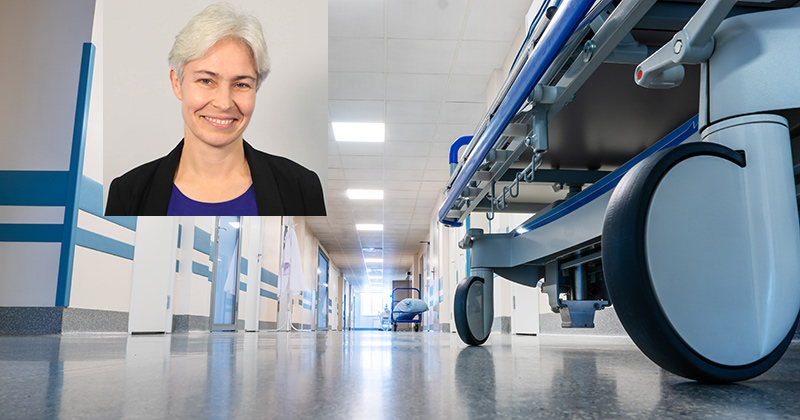


Beyond COVID
Photo by iStock and courtesy of Melissa Melby November 03, 2021
Pandemic precautions may have long-term effects on our microbiome
In recent years, scientists like the University of Delaware’s Melissa Melby have been sounding the alarm about what is sometimes called “the hygiene hypothesis” — the effect of intensive sanitizing and increased use of antibiotics on the microbes that we carry on our skin and in our guts.
These microbes, known collectively as the human microbiome, have become less diverse in a way that’s been linked to such conditions as asthma and allergies. Although some microbes are harmful, medical experts point out that most are harmless or even beneficial.
Now, with the COVID-19 pandemic changing our everyday behavior, Melby and others say the microbiome is in for even more changes.
“We’ve known for some time that overuse of sanitizers and other antimicrobials is causing health issues,” said Melby, professor of anthropology at UD and a medical anthropologist who is a co-director of the Humans and the Microbiome program through the international Canadian Institute for Advanced Research (CIFAR). “We know that good microbes are the best defense against bad microbes, but the pandemic is raising new challenges.”
Sterilizing surfaces, avoiding contact with others, spending less time outdoors and changes in diet — whether eating healthier, home-cooked meals or indulging in more unhealthy snacks while spending more time at home — are all behavioral changes prompted by the pandemic. What researchers are just beginning to study are the effects of these behaviors on the microbiome.
“Of course, you have to protect yourself from getting COVID, but we also need to think about the long-term effects of all these environmental changes,” said Melby, who was a co-author of a paper on the subject published earlier this year in the Proceedings of the National Academy of Sciences. “Our paper may have raised more questions than it answered, because it will take years to analyze all the effects on human health, but we hope that studying these issues will help prepare us for the next pandemic.”
At the start of the pandemic, Americans paid particular attention to sterilizing their surroundings. But, as time went on, scientists found that the risk of transmission of the virus from surfaces was low and that masks, social distancing and good ventilation were the most effective prevention methods.
Still, Melby noted, hand sanitizers and antimicrobial cleaning products are still commonly being used more often than before the pandemic. Cleanliness and hand washing have always been important, she said, but she added that we also need to consider whether overuse of strong chemicals, in school classrooms for example, is exposing children to a different danger.
“The idea that the more hand sanitizer and the more harsh chemicals the better, is just not healthy,” she said. She recommends activities that help promote health, while taking pandemic precautions, such as spending time outdoors and eating a healthy diet.
Even before the pandemic, CIFAR’s microbiome study group had been researching and publicizing ways to promote diversity in the biome, including breastfeeding and fiber-rich diets, as well as limiting the unnecessary overuse of antibiotics. “Probiotic” products are heavily marketed, but Melby noted that although commercial messages might raise awareness, they aren’t always based on accurate science.
About Melissa Melby
Melby is a medical anthropologist with training in chemistry, environment and development, public health and nutritional epidemiology.
Her research examines the ways in which environmental factors interact with human development to result in health outcomes. She conducted research in Japan for more than 15 years before joining UD’s Department of Anthropology faculty in 2011.
She is also co-director of the CIFAR Humans and the Microbiome research program.
Her current research centers on understanding people’s perceptions of the microbiome, including such topics as breastfeeding, diet and the use of antibiotics. She and her students conduct interviews to assess those perceptions, with a focus on five groups of women: elderly; complementary and alternative medicine users; mothers of young children; people with chronic disease; and people with pets.
Contact Us
Have a UDaily story idea?
Contact us at ocm@udel.edu
Members of the press
Contact us at 302-831-NEWS or visit the Media Relations website

